STARTING A BUSINESS
(Note: This blog posting is an abbreviated written transcript form of the audio podcast)
I want to start off by saying that I am not an attorney nor do I pretend to be one I am simply sharing some ideas and some of the things that I have discovered as far as setting up a business. I recommend that if you are going into business for yourself; meaning you intend on selling your goods and services or the goods and services of someone else; then you really need to do your own research regarding what it all entails and secure legal counsel if necessary.Most people just want to do what is it they are good at doing; creating, developing, manufacturing, serving etc and don’t want to bother with the business side of things but whenever you intend on selling goods and services; then it becomes a business and you should have some understanding of what is required of you.I’ll be honest with you I really don’t like this side of things either I would much rather be doing something else but the set up and running of your business is just as important as any other aspect of your business.
SETTING UP YOUR BUSINESS
If you are in the initial stages of setting up and starting your business you should be thinking about things like:
- What to name your business?
- Do you have a logo; trade mark etc?
- Will you be a sole proprietor; an LLC or a corporation?
- What are the state requirements for things like insurance and taxes etc?
- Where will the physical location of your business be? e. in the home or a brick and mortar.
- Will you have employees or will you need to 1099 anyone?
- Do you need a business plan….a mission statement?
Name your company:
If you haven’t already done so; one of the first things that you want to do is to decide on a name for your company. Naming your company can be a complex or a simple process. Here are a few things to consider:
- Do a name search to make sure that the name is not already taken or trade marked by another company
- Try to come up with a name that would tie in with your products and/or services. For example if you have a publishing company that writes about music then you might want to name it “Melodious Press”.
- Try to come up with a catchy name but not one that is difficult to spell or is not widely used or understood. For example you wouldn’t want to your dry cleaning store; “Affordable dry Hygienic“. Yes Hygienic means clean and it could be translated as “Affordable dry clean” but your average person wouldn’t know that.
- Brainstorm; take a pad and pencil and write down as many names as possible that you think may be a good match for your company. Check out a few of your competitors names as well and then ask friends or relatives their opinion.
What will your business Structure be?
The type of legal structure you choose for your company is probably the most important of all the decisions you make when starting a business.
Not only will this decision have a huge influence on your tax payments, it will also affect the amount of paperwork your business has to do, your ability to earn profit and the personal liability you face.
As each business form comes with different tax consequences, you have to make your choice smartly. You should choose the structure that most closely matches your company’s needs. There are several business structures; I will not be covering them all but the following a just a few of the main structures that you may want to consider.
Sole Proprietorship
Sole proprietorship is the simplest structure which involves just one individual who owns and operates the entire business. If you don’t want a partner and if you want the easiest and fastest way to get up and going then , this structure can be the best for you. Contact your state to get an Employer Identification number(EIN number) and complete the necessary paperwork and your good to go.
As long as you are the only owner of your business then you do not have to take any other formal action to form a sole proprietorship.
A word about EIN numbers
An Employer Identification Number (EIN) is also known as a Federal Tax Identification Number, and is used to identify a business entity. Generally, businesses need an EIN. You may apply for an EIN in various ways, and now you can apply online. This is a free service offered by the Internal Revenue Service and you can get your EIN immediately.
http://www.irs.gov/Businesses/Small-Businesses-&-Self-Employed/Employer-ID-Numbers-EINs
The things that are nice about signing up as a Sole Proprietor is that it is the easiest to set up with very few forms to complete and the cost is minimal; that would include the cost of the needed permits and license (contact your states business bureau). Another nice thing is that you have complete control over the business decision making. It is also important to note that because there is no legal separation between you and your business the tax preparation is not as cumbersome. The tax rate is lowest with the sole proprietorship business structures.
While all of this sounds very nice; the sole proprietor comes with a word of warning. It is important to note that this model comes with the dreaded unlimited personal liability; meaning – you can be personally liable for the liabilities and obligations of your company because there is no legal separation between the two parties. Also if you went to a bank to try to obtain funding; most banks will not lend to a sole proprietor.
Partnership
This structure is a type of business where there are at least two or more people who will be sharing in the ownership, management decisions, losses and gains.
Types of Partnerships
Generally, there are 3 types of partnership arrangements:
- General partnerships – liability, profits, gains and management duties are divided equally among partners. If there’s an uneven distribution, the percentages assigned to every partner must be documented in the partnership agreement.
- Limited Partnerships – are more difficult than general partnership, here the partners are allowed to have limited liability as well as limited input. These limits are determined by the partner’s investment percentage.
- Joint ventures – This is where partners act as general partners for a limited period of time or for a single project. They can be recognized as continuing partners if their venture continues however they must file as such.
Corporation
When you file a corporation the shareholders’ personal assets are protected from the corporation’s debts and actions. Plus, corporations file taxes separately from their owners. The owners only pay taxes on corporate profits paid to them in the form of dividends and bonuses. Any additional profits are awarded a corporate tax rate, which is commonly lower than a personal income tax rate.
A corporation is treated as if it is an independent entity owned by stakeholders; almost as if it is an actual person Because it is separate from its owners it requires complying with more regulations and tax requirements. This structure is can be expensive and complex and will probably need the help of an attorney to setup. Corporation are formed under the laws of the state in which it is registered.
A limited liability company (LLC)
Is a flexible form of enterprise that blends elements of partnership and corporate structures. An LLC is not a corporation; it is a legal form of company that provides limited liability to its owners in the vast majority of United States jurisdictions. LLCs do not need to be organized for profit.
http://en.wikipedia.org/wiki/Limited_liability_company
LLC as defined from the IRS website
A Limited Liability Company (LLC) is a business structure allowed by state statute. Each state may use different regulations, and you should check with your state if you are interested in starting a Limited Liability Company.
Owners of an LLC are called members. Most states do not restrict ownership, and so members may include individuals, corporations, other LLCs and foreign entities. There is no maximum number of members. Most states also permit “single-member” LLCs, those having only one owner.
A few types of businesses generally cannot be LLCs, such as banks and insurance companies. Check your state’s requirements and the federal tax regulations for further information. There are special rules for foreign LLCs.
http://www.irs.gov/Businesses/Small-Businesses-&-Self-Employed/Limited-Liability-Company-LLC
A WORD ABOUT BUSINESS PLANS
Do you need a business plan, in most cases probably not unless of course you are trying to get a bank loan and/or seek out some serious venture capital.
While you probably don’t need a formal business plan, that quite frankly can be pretty tough to put together,
you really should put together some type of brief informal plan or summary of your business and its structure. I really do believe this is important no matter how big or how small your business is.
This informal plan can be anywhere from one to one hundred pages long depending upon the type of goods and services you have, location, such as a brick and mortar or in house; will you have employees etc.
I call this an informal plan because nobody but you (unless of course you want to share it with others) has to read the plan. By writing things out it forces you to brain storm and perhaps come up with some things that you did not think of before. Even if you have a fairly large business and know that you will have to seek out professional advice I believe that you should still draft up something prior to your first meeting.
Setting things up correctly on the front end is important…..like the old saying…..”An ounce of prevention is worth a pound of cure.”

Elevator Pitch
I love the term “Elevator Pitch”; the idea here is to be able to explain in a matter or 30 seconds or so just what your business is all about. Everyone should have a nice elevator pitch. However; drafting an informal business plan is far from an elevator pitch.
The following are several key things and topics to use as an outline for your research as taken from the book “The Business Planning Guide” by David H. Bangs Jr.
Description of your business
- What business are you in? for example merchandising, service or manufacturing. What are your services and/or products? Who are you customers?.
- What are you selling?
- What is the status of your business: A startup? A division of a larger business?
- What is the business form/structure: Sole proprietorship, partnership, corporation
- How is your business going to make profits (or continue to grow)?
- When will (did) your business open?
- What hours of the day of the day and days of the week will you be (are you) in operator?
- Is your business seasonal?
Know your product and service inside and out
You might have a pretty nice idea for opening a bicycle sales and repair shop; however when writing a business plan you should be thinking about things like:
What sets you apart from someone else in the same business?
- Where is the location and is it easy to access
- What are the store hours?
- Is there a guarantee that if the parts are not in stock they can be ordered and delivered within a matter of days?
- Will I have trained and knowledgeable staff?
If you can deliver these things and more than be sure to write them down just beside the topic entitled “What are you selling?”
If your product is new and/or unique to the buyer then you should know whether there is a learning curve and ask yourself these questions.
- How will the buyer use your product?
- Will you or someone else be able to teach the buyer how to use it?
- Will it be too difficult and or costly to try and teach a buyer?
These are some of the things that you should be thinking about and writing down just in case you will have to train your customers.
- What makes your product or service stand out from your competitors? Why should they come to you instead of your competitor?
- Do you know who your competitors are? You should. Try your best to make sure that what you have to offer is one step above the rest.
Know your market
- Who are your customers?
- You should know who your target market is. What are the demographics i.e. age, gender, social economic status etc.
- Know their buying habits
- know where they are buying and from whom
- How and where are they buying
- Are your prices in keeping with your competitors?
- How will you reach your customers? e. online sales via your website? Social Media? Print advertisement; magazines; flyers; brochures etc
Location, location, location
Where you are located; means more than you can imagine. I can remember diving sometime ago to my favorite grocers and noticed a food truck in the parking lot of a neighboring strip mall. I thought what a nice idea. For years the only places that offered meals to the numerous businesses not to mention residents in that area, were a few fast food places. Not long after I began noticing even more food trucks in that same area and the lines were pretty long for every truck. These truck owners could see that there were a lot of office buildings, medical centers and other retailers and practically no other eating places nearby; so they would appear primarily around lunch time and do very well.
Opening a nail salon on a strip mall where there are already five other nail salons may not be your best choice for a location…..I’m just sayin.
There are so many other factors and topics to explore surrounding this topic; I would suggest that you purchase a business planning book and/or go to your local library and get your hands on a nice book for starters.
If you can afford some software I suggest that you use that as well. Years ago I purchased “Business Plan Pro by Alta Vista”. I love that software. It is very easy (in my opinion to use) and they give you loads of example business plans to look at from just about every type of business. What’s new to this company is something called “live plan”, it appears to be easier to use then Business Plan Pro. I have uses Business Plan Pro and it is a great program; and would highly recommend it; I’ll have some links in the show notes for both these products. Again, you can always go to the library to check out a few books for free. I am only asking that you please….if you haven’t already done so…..start drafting an informal business plan for your own records. This will serve as a great start for when and if you have to have a professional draft the real deal.
QUIZ TIME
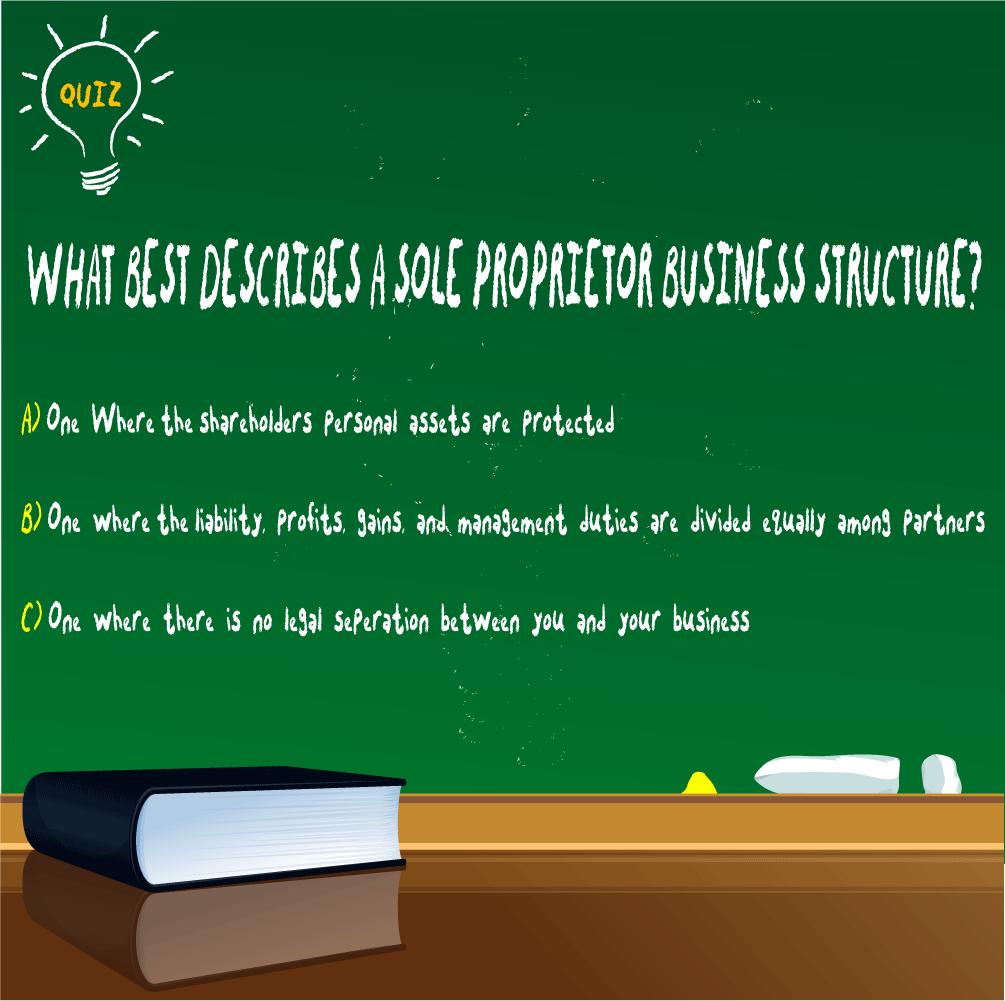

QUESTION
What best describes a Sole Proprietor Business Structure
A. One where the shareholders’ personal assets are protected
B. One where the liability, profits, gains and management duties are divided equally among partners
C. One where there is no legal separation between you and your business


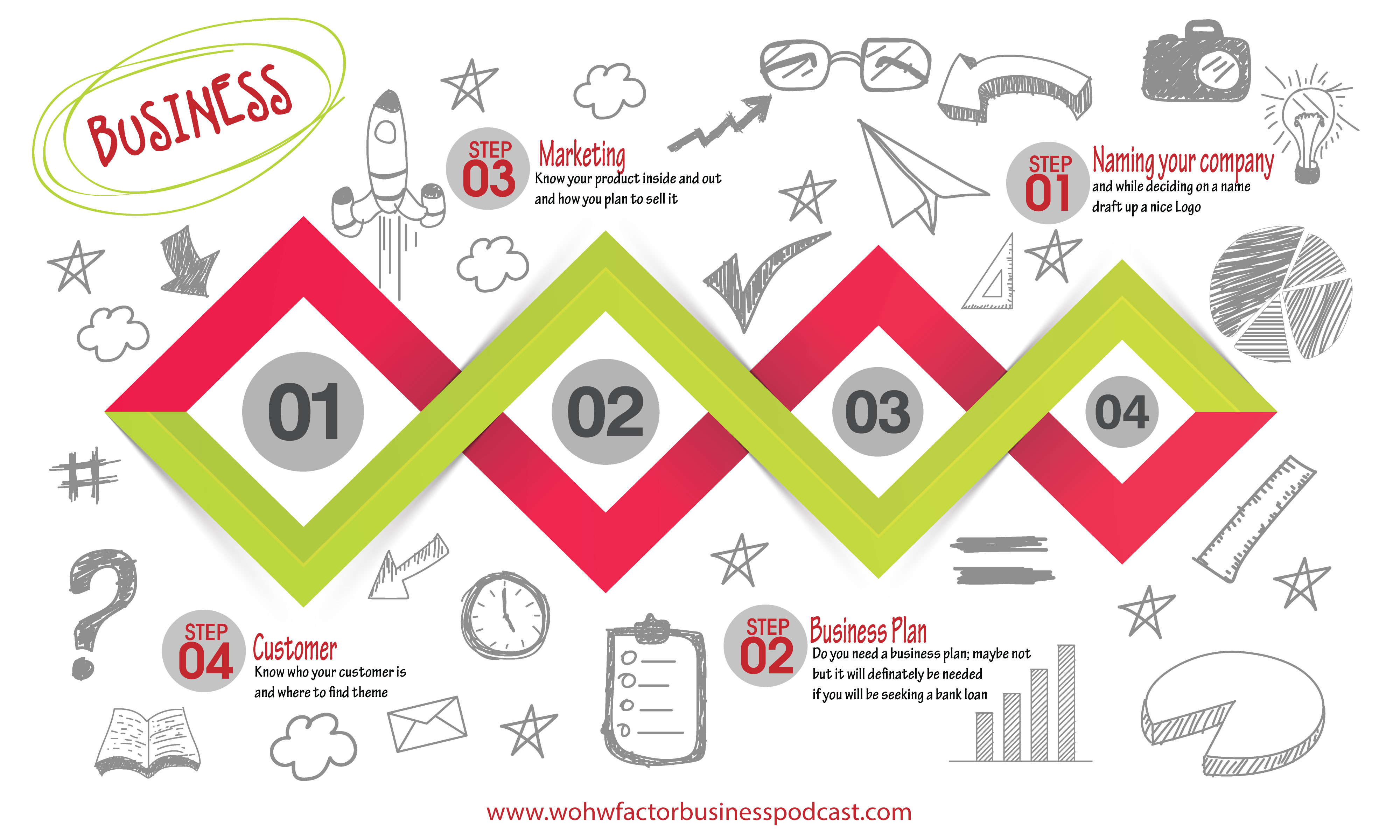
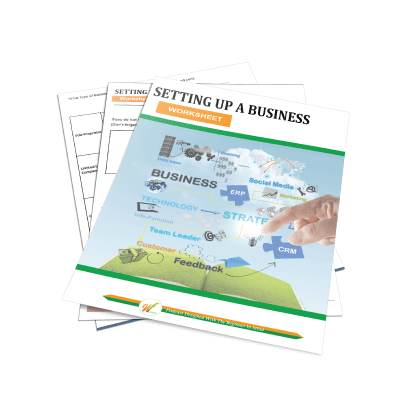





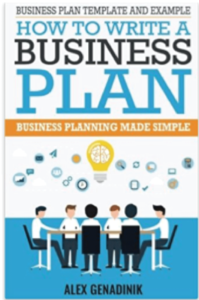



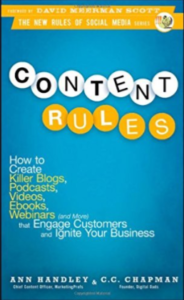



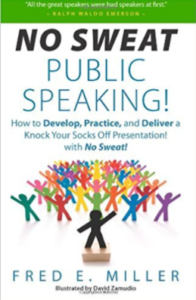
Thank you Linda. I enjoyed the first Podcast and moved on to the second. The Podcasts are great! I am gaining more and more confidence.
Your information and influence are empowering for beginners like me.
PM
Thank you Portia I am glad that you liked it. Be sure to subscribe to the email list so that you will know when other news and information is released. Be blessed!